I’ve been a Christian believer for more than 60 years, and through the first 40-50 years, the Old Testament really bothered me.
I didn’t know how to understand it. I couldn’t really believe the stories of Adam & Eve and Noah’s Ark were literally factual. I was troubled by a loving God apparently ordering cruel genocide.
And so I prayed about it, for maybe 2 years. I asked God to show me how to understand the Old Testament. And I believe he answered me, by leading me to a number of books which gave me a new perspective.
So here’s a quick review of eight books that have really helped me. (I’ve shown links if I’ve reviewed them in more detail.)
There are real difficulties
Evangelical Christians have been taught that the Bible is inerrant, or at least reliable, and that any apparent problems are illusory and can be explained – so don’t doubt. But is this an honest approach?
Evangelical Faith and the Challenge of Historical Criticism.
C Hays & C Ansberry
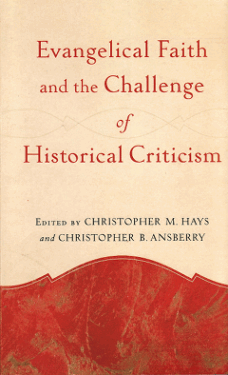
Christians who believe the Bible is inerrant are naturally suspicious of historical analysis (called “criticism”) that doesn’t make this assumption, and in fact challenges it.
But the editors and authors of this book argue that accepting the findings of historical criticism is not a threat to faith.
They address the issues of Adam and the Fall, the Exodus, prophecy, and the dating of Deuteronomy, as well as several New Testament issues. They recognise real difficulties. And they argue that the writers were not writing dispassionate history, so each selected, adapted and interpreted both history and doctrine to meet their objectives.
What is the Old Testament?
The Old Testament is a collection of 39 documents written anywhere from 2,200 to 3,000 years ago. They were written in an ancient language and out of an ancient culture. Yet modern day western Christians tend to read them the same as they’d read a newspaper or modern history.
But there is a better way.
How the Bible Actually Works. Peter Enns
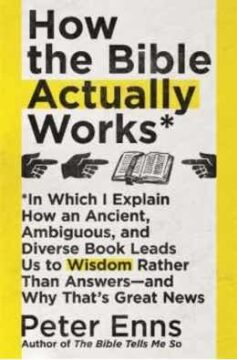
Old Testament scholar Peter Enns outlines his conclusion that the Bible isn’t some perfect book dictated by God but a response by the Jewish people to their interactions with God and the world around them. Often the Old Testament presents more than one view as the Israelite people worked their way through issues. As they learnt more, they adjusted their teachings and the texts. As a result, the Bible, he says, helps us gain wisdom about how to live and relate to God rather than fixed rules.
This view would be anathema to many conservative Christians, but Enns shows that it makes more sense of the well-known difficulties in the Old Testament. A very readable and sometimes humorous coverage of an important and vexing topic.
Inspiration and Incarnation. Peter Enns
In this earlier book, Peter Enns examines three interesting facts about the Old Testament:
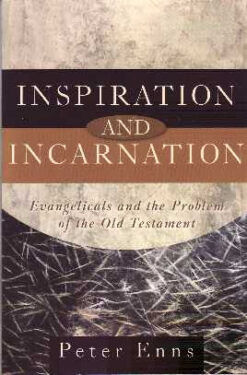
- The Old Testament and Ancient Near Eastern Literature. How some parts of the Old Testament look very similar to stories from other nations and what we can learn from that.
- The Old Testament and Theological Diversity. How there are developments and even contradictions in some teachings.
- Old Testament interpretation in the New Testament. What we can learn from how Jesus and the apostles used their scriptures (our Old Testament).
These facts change the way we see the Old Testament.
Genesis vs evolution?
Evolution used to be a key issue for Christians, but many of us have moved past it now. These two books help explain why.
I love Jesus and I accept evolution by Denis Lamoureux
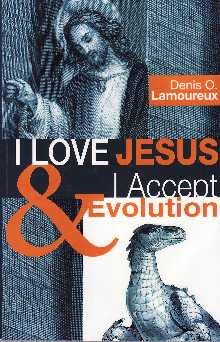
Denis Lamoureux has doctoral degrees in dentistry, theology, and evolutionary biology, the latter two obtained so he could write authoritatively about Genesis and evolution.
He shows how the Genesis account is based on an ancient cosmology and shows evidence of being a combination of two different accounts written for quite different purposes.
Then he examines the fossil and age-of-the-earth evidence and shows how the science and theology fit together well.
Adam and the Genome. Dennis Venema and Scott McKnight
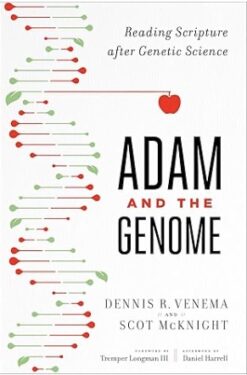
A geneticist and a Biblical scholar join forces to give a theological perspective on understanding Genesis in its Jewish cultural context, and a scientific understanding of evolution and genetics.
Genetic (DNA) evidence seems to me to be the strongest “proof” that evolution is broadly true, and this book explains why in readable detail.
And also shows in detail how this reality presents no problems for the Christian reader.
Reliable history, or something else?
The exodus from Egypt and the “conquest” of Canaan are the parts of the Old Testament most problematic as history, because of the lack of corroboration by archaeology.
Surely if it’s “God’s book”, we should believe everything in it is true? But truth comes in different forms. What if God chose to reveal himself in a way we don’t expect?
Beyond the texts. William Dever
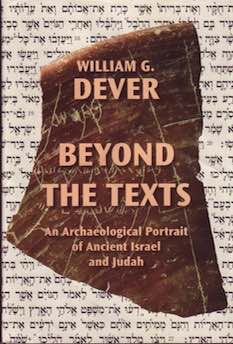
This comprehensive book by one of the world’s premier Middle Eastern archaeologists isn’t light reading, but I found it fascinating. The archaeological evidence for the Israelites in Canaan is clear:
- Many of the battles outlined in the book of Joshua appear not to have happened, or happened at some other time, or were much smaller affairs than portrayed.
- The population of Canaan after the Israelites arrived was not anywhere near the 2 to 3 million suggested by the Biblical stories.
- The kingdoms of Judah and Israel were much less monotheistic in the period of Joshua than the Bible suggests.
This may seem shocking, but when we examine the book of Joshua, we find there are two very different stories in it. Chapters 1-12 describe a full conquest; chapters 13-24 describe a much more gradual assimilation. The archaeology shows that the latter is more historical, the former more like propaganda.
The Exodus. Richard Elliot Friedman
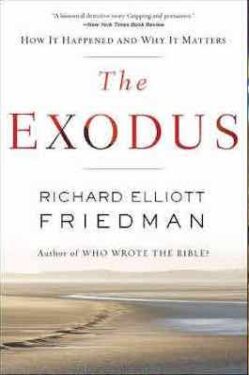
The story of Moses leading the Israelites out of slavery in Egypt in the second millennium BCE is foundational to the Jewish people and important to Christians too. But the archaeological evidence for it is scant. It seems very unlikely that 2-3 million slaves spent 40 years in the desert.
Richard Friedman examines textual and linguistic evidence to argue that an exodus did indeed take place, but on a much smaller scale than in the Biblical story.
He concludes that the escaping slaves carried monotheism with them, and this was pivotal in developing the nation of Israel and its faith.
Exodus for normal people. Peter Enns
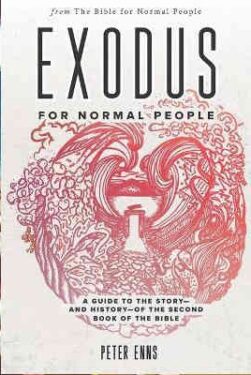
Peter Enns also has doubts about the historicity of the exodus. He sees it as “mythicised history”, meaning it has a historical core but most of the details are there to make a point rather than record accurate history.
He outlines why he holds this view, summarises the main themes of the book of Exodus and gives some thoughts on what Christians can gain from reading it.
He argues that we should understand the Bible for what it actually is, not for what we’d like or expect it to be. Like CS Lewis, he argues we can understand God better this way.
Understanding the Old Testament
Wisdom for Faithful reading. John Walton
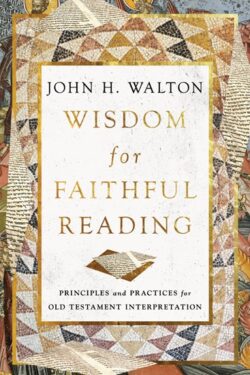
This is possibly the most helpful book I have ever read on the Old Testament. John Walton is an eminent scholar from an evangelical background, who honestly addresses issues that most conservative Christians don’t.
The book contains 37 interpretive principles, each with its own chapter. His principles recognise the Old Testament was written in a culture language and time foreign to us, so we need to avoid interpreting it the way we would interpret modern writings. We must understand culture, genre, language and the authors’ intentions.
When we do, we reach some helpful and surprising conclusions.
What I learnt
Some Christians would be dismayed to read these books and see them as a threat to faith. But I found them faith enhancing:
- Instead of seeing the Old Testament as inerrant history, with all the difficulties that raises, I can see it as an account of how God took a bunch of ancient pagans and, via the prophets, corrected their beliefs and ethics so they were prepared for the coming of Jesus.
- I no longer have to believe that an angry God commanded genocide, inflicted terrible plagues or flooded the entire world, but can see these stories as mythical or as mythicised history.
- I can keep an open mind on exactly what happened in the exodus and the “conquest” of Canaan.
- I can believe a loving God patiently revealed himself through the Old Testament and ultimately through Jesus.
I feel thankful and believe God answered my prayers for clarity through these books.
Main photo by Pixabay




